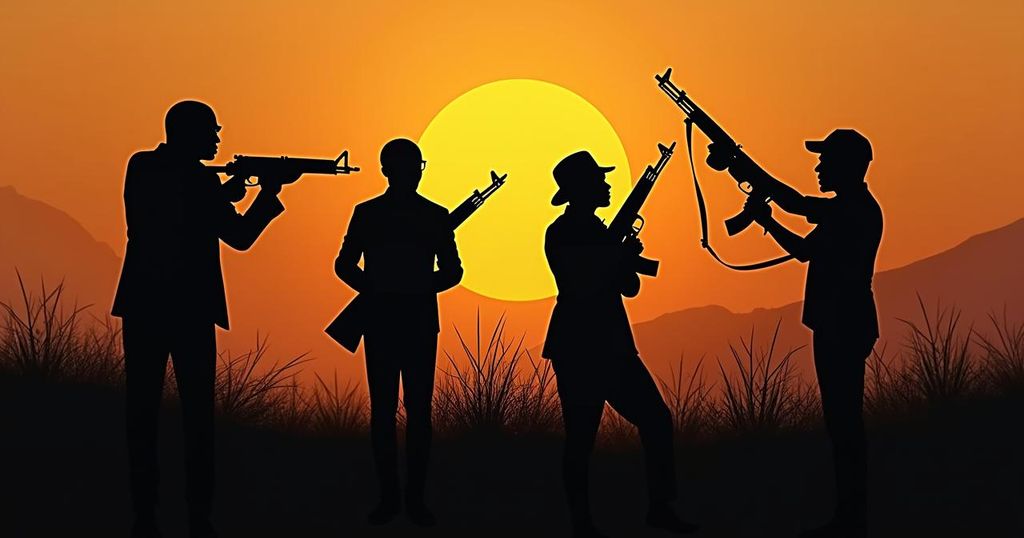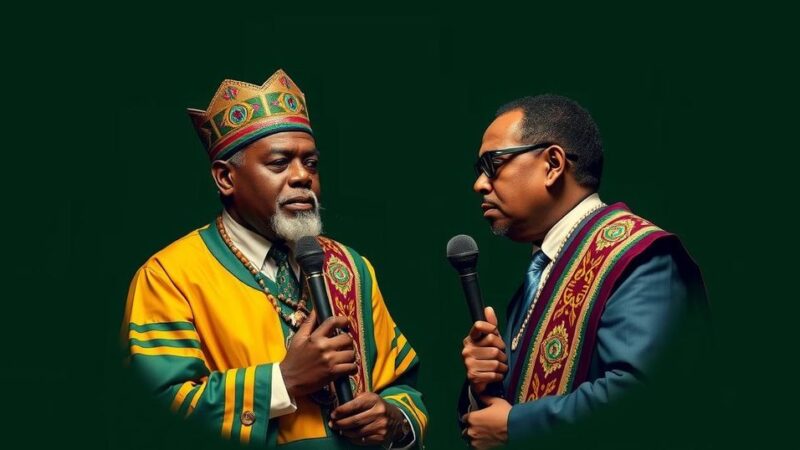Mozambique’s upcoming elections are set to introduce a president born post-independence, with four candidates competing, including Frelimo’s Daniel Chapo and opposition leader Ossufo Momade. Amid significant challenges such as armed conflict, economic difficulties, and climate vulnerability, young voters express a strong desire for change as the nation approaches this pivotal electoral moment.
Mozambique is poised to experience a pivotal electoral event as citizens head to the polls to participate in simultaneous parliamentary and provincial elections across the nation. This election is significant, as it is anticipated to introduce a president born post-independence from Portuguese colonial rule in 1975, marking a notable generational shift in leadership. An estimated 17 million eligible voters from a population of 32 million will cast their ballots in this coastal, resource-rich Southern African country. Current President Filipe Nyusi, of the Mozambique Liberation Front (Frelimo), will not seek re-election after serving eight years in office. This election could signal the end of Frelimo’s long-term dominance, previously upheld by leaders from the liberation war era, with Nyusi accused of presiding over a corruption scandal that has marred the party’s reputation. The youthful electorate desires change, emphasizing job creation and improved security amid rising poverty and ongoing armed conflicts, particularly in Cabo Delgado province. The election hosts four principal presidential candidates, notably: 1. Daniel Chapo (47): A rising star within Frelimo, Chapo is favored to succeed Nyusi due to the party’s entrenched political machinery. Despite his efforts to dissociate from the party’s corrupt legacy, many young voters remain skeptical regarding his ability to enact meaningful change. 2. Ossufo Momade (63): Renamo’s leader and a former civil war combatant, Momade’s historical significance adds to his appeal, although he is associated with the old political guard. Having previously contested the presidency, he aims to garner wider support following his peace treaty accomplishments in recent years. 3. Venancio Mondlane (50): Known as VM7, Mondlane has gained traction among younger voters, promoting an independent platform and promising to address issues such as security and job creation. 4. Lutero Simango (64): Leading the Democratic Movement of Mozambique (MDM), Simango’s campaign focuses on local resource processing to enhance employment opportunities. Critical issues at the forefront of this election include the protracted armed conflict in Cabo Delgado, rampant unemployment and economic hardships, and the urgency to reinforce climate resilience as a response to escalating natural disasters and food insecurity. The National Election Commission will begin to announce partial results shortly after polling closes, with official tallies released within 15 days.
Mozambique’s elections, scheduled against a backdrop of economic challenges and insecurity, are particularly consequential. President Filipe Nyusi’s departure from the political stage provides an opportunity for a new leader who may advocate for change aligned with the needs of a predominantly young population. This election is set against the historical context of Mozambique’s liberation struggle and the subsequent governance issues highlighted by corruption scandals that have eroded public trust in the ruling party, Frelimo. The rising demand for leadership changes underscores youth discontent with existing governance and the desire for improved socio-economic conditions amidst ongoing armed conflicts and environmental challenges.
In conclusion, the upcoming elections in Mozambique represent a critical juncture for the country’s political landscape, with the potential for a generational shift in leadership. As candidates vie for the presidency, pressing issues such as security, economic stability, and climate resilience will dominate the conversation. The density of disillusionment among young voters reveals a widespread eagerness for transformative change, which may alter the future trajectory of Mozambique’s governance.
Original Source: www.aljazeera.com






